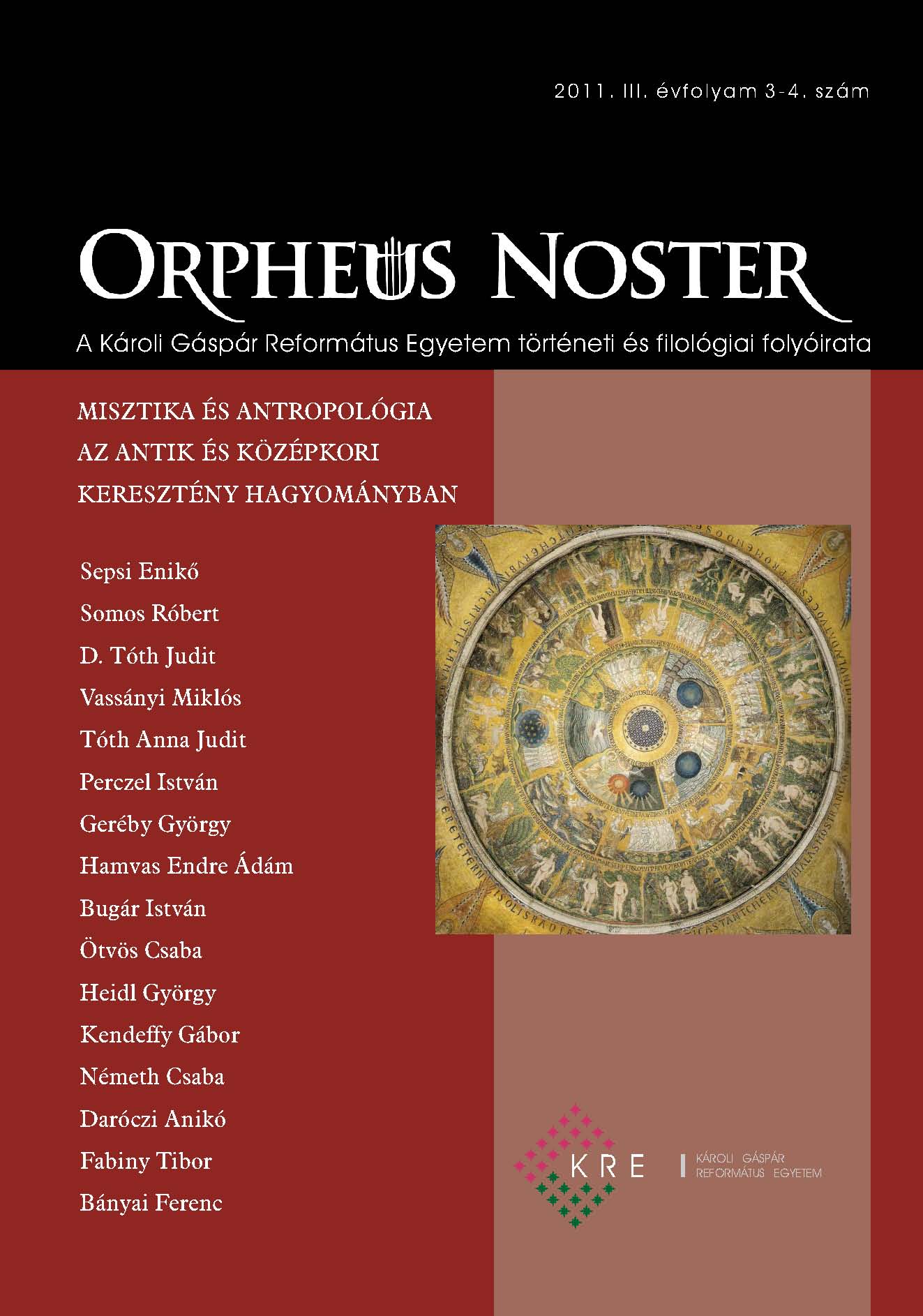A vágy antropológiája Nüsszai Szent Gergely Énekek éneke-kommentárjában
The Anthropology of Desire in Saint Gregory of Nyssa’s Commentary on the Song of Songs
Author(s): Judit D. TóthSubject(s): Christian Theology and Religion, Theology and Religion
Published by: Károli Gáspár Református Egyetem
Keywords: mysticism; Saint Gregory of Nyssa; Song of Songs
Summary/Abstract: In mystical thought as in elastic religious experience, the desire (eros, epithymia) driving the human soul to God, independent of ages and persons, plays a very important role. In mystical literature its nature was mainly verbalized through the phraseology of love. The starting point was the explanation of the Song of Songs in the Old Testament. Among the allegorical interpretations, one of the most important exegetical works was Saint Gregory of Nyssa’s commentary (In Canticum Canticorum). In theological criticism it has been interpreted in the context of the Vita Moysis, another major mystical work of the Cappadocian Father. They have been interpreted in the context of apophatic theology, the never-ending process of ascension from the “light” of the material and sensual world to the “darkness” of the union with God. In my paper I focus on the anthropological and other connotations of desire (eros, epithymia) which play a central role in this ascension, investigating the homilies of In Canticum Canticorum. I intend to point out the strong ties among the aspects of desire in the thought of the Cappadocian Father. The problem of desire is strongly attached to psychology in St Gregory’s anthropology. For him, desire is a power within the soul but it plays an important role in the ethical and pedagogical connotations of his anthropology, too, as the basis of continuous progressor ascension. The basic question concerning the noetic ascension from the light into ever growing darkness, in connection with the thought of infinity in God, is also a question of satisfaction or non-satisfaction of desire. The relationship of the “darkness” of mystical ascension to God and the “light” of faith is an even more important problem.
Journal: Orpheus Noster. A KRE Eszme-, Kultúr-, és Vallástörténeti Folyóirata
- Issue Year: III/2011
- Issue No: 3-4
- Page Range: 18-26
- Page Count: 9
- Language: Hungarian

